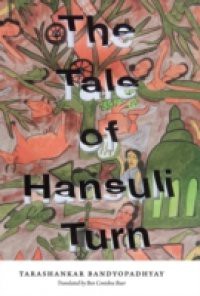The Kahars of Hansuli Turn, a rural village in West Bengal, belong to an untouchable "criminal tribe" epically transformed during India's independence. Negotiating the colonial depredations of the 1939-45 war and the oppressions of an agrarian caste system, the Kahars might seem to welcome modernization, but many in the tribe fear the consequences of a revolutionized society and the loss of their culture within it. Lyrically rendered by one of India's great novelists, this story of one people's plight showcases the anxieties of a nation and the resistance of some to further marginalization.Headman Bonwari, leader of the Kahars, upholds the ethics of an older time, but his fragile philosophy is no match for the ruthless machines of war. When a terrifying sound wrecks the peace of their jungle, the tribe becomes split as to its true meaning. Reading it as an apocalyptic sign, the elders believe the old gods have abandoned them, while the younger villagers, led by the rebel Karali, seek a more rational explanation. As the two factions fight, rules of authority, religion, sex, and society begin to crack, and when a devastating cyclone further disrupts the village, Karali seizes his chance to control his people's future. Sympathetic to the desires of both older and younger tribesmen, Tarashankar Bandopadhyay depicts a difficult moment of transition, in which a marginal class and caste fragments under the pressure of local and global forces. Written and published between 1946 and 1951, Bandopadhyay's novel is remarkably innovative, speaking frankly of gender and sex while experimenting with popular epic and song. It uncannily anticipates the dilemmas of rural development, economic exploitation, and dalit militancy at the center of India's post-Partition politics.

